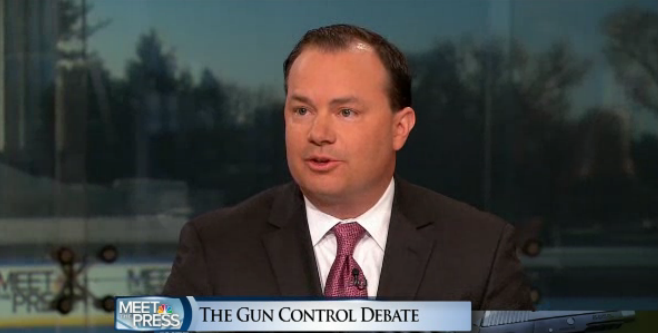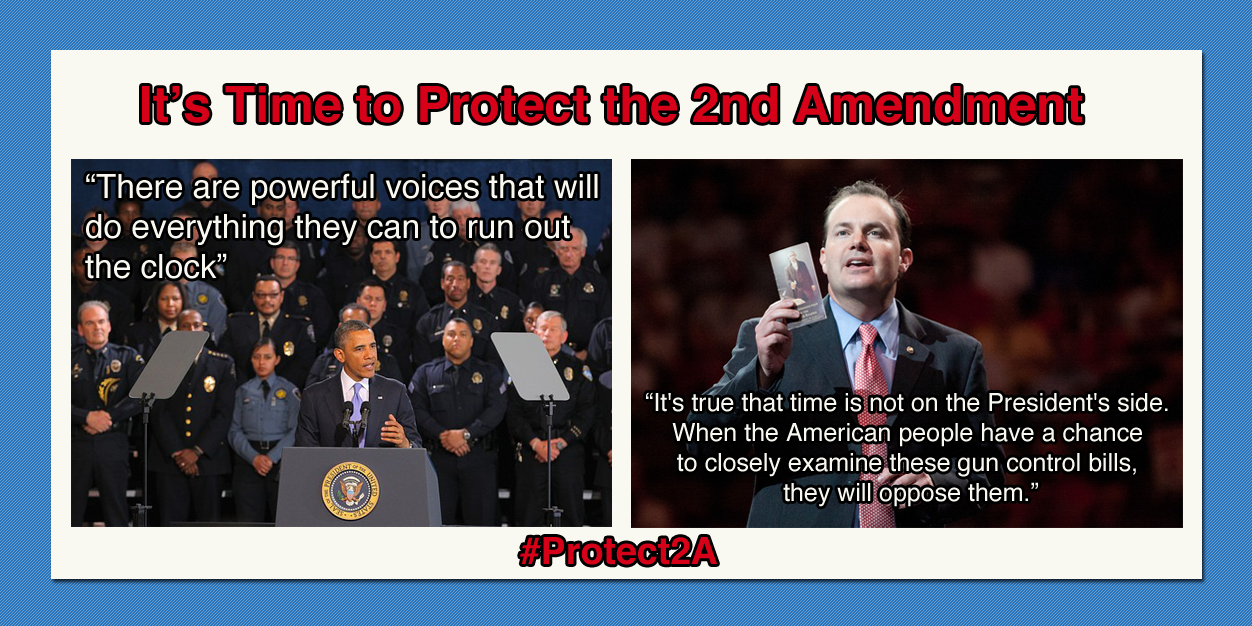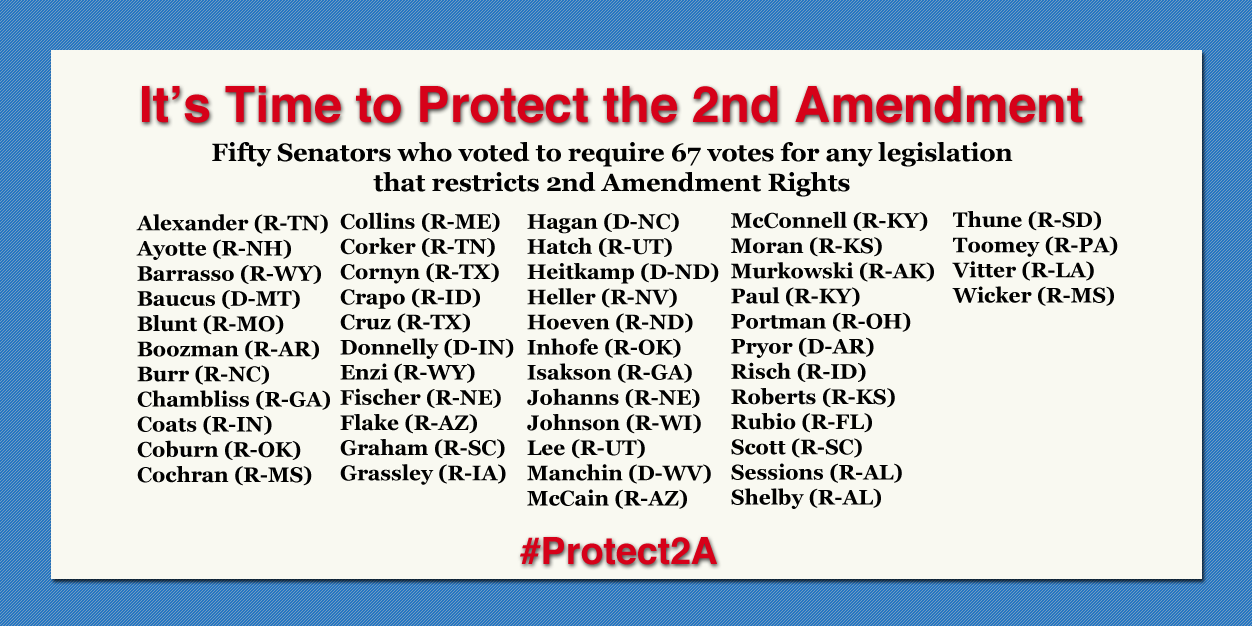Lee Discusses Gun Control and Immigration on Meet the Press
Apr 15, 2013

the gun control proposals we've seen would serve primarily to limit the rights of law-abiding citizens while doing little, if anything, to actually prevent tragedies like this from occurring in the future.
Lee: "Don't the American people deserve to know what we are voting on?"
Apr 11, 2013

As I have argued on this floor, in the national media, and back home in Utah, we should not be legislating by using closed door, back room deals away from the eyes of the American people. We should not be voting before we understand exactly how these proposals will affect the rights of law abiding citizens and whether we can say with any level of certainty that they will reduce crime.
Lee, Paul, Cruz: Senate to Vote on Gun Bill No One Has Read
Apr 11, 2013

This morning the Senate will vote on the motion to proceed to the firearms bill (S.649). It is expected that the Toomey-Manchin provision announced yesterday will replace the current language regarding background checks.
Gun Debate is Key to Protecting Individual Liberty
Apr 10, 2013
At its core, the Second Amendment helps ensure that individuals and local communities can serve as the first line of defense against threats to our persons and property. Any limitation on this fundamental right of self-defense makes us more dependent on government for protection. But government can’t be everywhere at all times, so the practical effect of limiting our individual rights is to make us less secure.
Lee: Timing of Immigration Hearing “Completely Inadequate”
Apr 10, 2013
A single hearing scheduled so quickly to discuss legislative language that is not yet even available is completely inadequate for Senators or the American people to get answers to the many questions a bill of this magnitude will inevitably raise. We could not possibly have a meaningful hearing with a substantive discussion of what will surely be over 1,000 pages of provisions we haven't even yet seen.
Lee: We have no intention of preventing debate or votes on gun control bills
Apr 10, 2013

For several weeks now, Washington and the rest of the country have been debating several new gun control proposals. Along with a number of my colleagues, including the Minority Leader, I have declared my intention to resist an immediate vote on any new restrictions that would serve primarily to limit the freedoms of law-abiding citizens rather than reduce violent crime.
Senator Lee Shares Voices of American Citizens Who Want to Protect 2nd Amendment
Apr 10, 2013

The President has spent several weeks evoking the tragedy at Sandy Hook and highlighting the voices of the victims in an effort to promote his gun control proposals. But he has not explained to the American people how any of his new gun control measures would have prevented that or any other terrible tragedy or reduced gun violence in any measurable way.
Lee: We Have Been Voting On and Debating Guns for Weeks
Apr 9, 2013

Today, Senator Mike Lee (R-UT) shot back against misleading claims by President Obama and top congressional Democrats that Republicans are blocking votes or debate on new gun control legislation.
Lee Praises Momentum for Protecting Second Amendment Rights, Launches #Protect2A
Apr 8, 2013
Americans know the true meaning and purpose of the Second Amendment is to guarantee our right to self-defense in our system of self-government. We’re asking citizens to share their stories about what the Second Amendment means to them and why they feel the Senate should protect their 2A rights.
Lee Opposes UN Arms Trade Treaty
Apr 3, 2013
The United Nations Arms Trade Treaty is deeply flawed, which is why a majority of senators recently voted to stop the administration from continuing to push it
